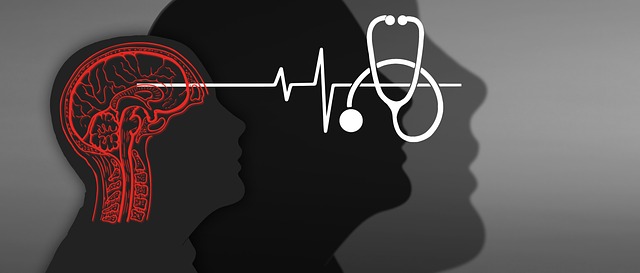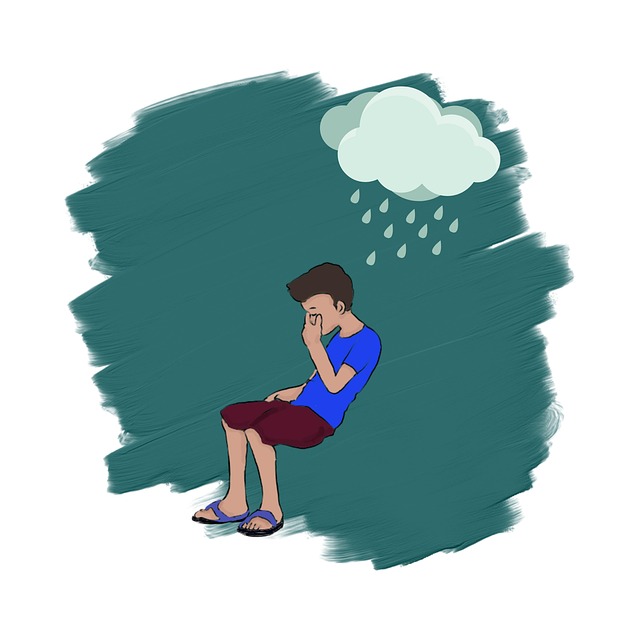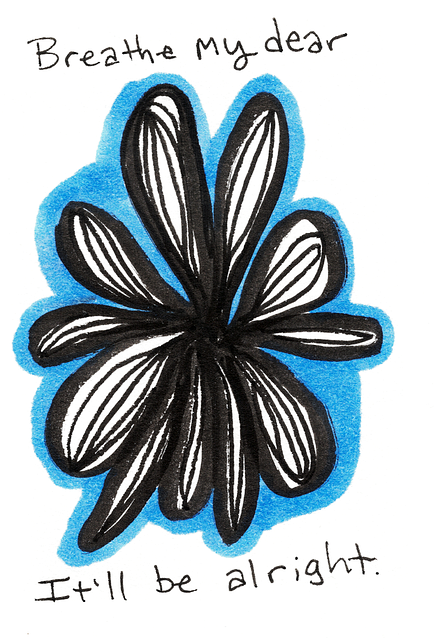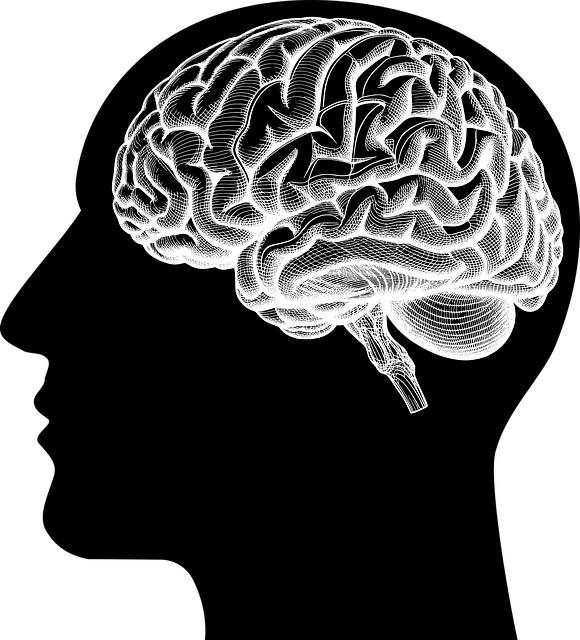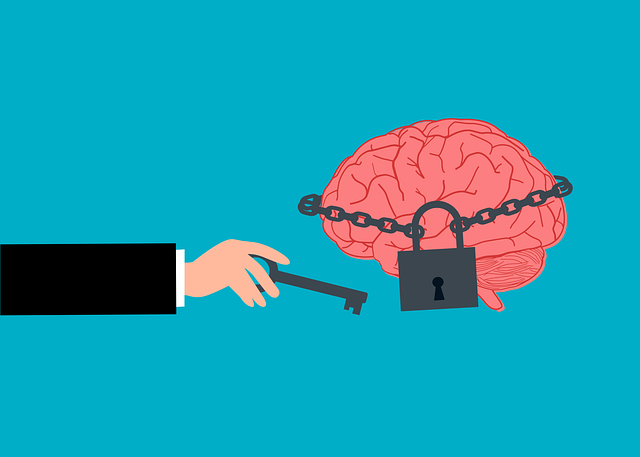Loss, grief, and domestic violence profoundly impact adolescents, requiring specialized therapy for adolescent teens to heal. This therapy equips them with coping skills, fosters resilience, and addresses complex emotions stemming from trauma. By offering safe spaces and empathy-building strategies, therapists help teens regain emotional control and prevent long-term mental health issues. Early counseling intervention is crucial, targeting behavioral changes and promoting healthy emotion expression through awareness campaigns. Various therapeutic approaches, like CBT and expressive arts therapy, support individuals in processing grief and developing positive thinking techniques for improved emotional well-being.
Loss, grief, and bereavement are profound emotional journeys that can profoundly impact adolescent teens exposed to domestic violence. This article delves into the intricate relationship between these issues, offering a comprehensive guide for understanding and supporting vulnerable teens. We explore therapeutic approaches, from recognizing signs of distress to empowering resilience. By examining effective counseling strategies, we aim to help professionals navigate the complex trauma of domestic violence and facilitate healing for adolescents navigating loss.
- Understanding Loss, Grief, and Bereavement: A Journey Through Emotional Landscapes
- The Impact of Domestic Violence on Adolescent Teens: Unraveling Complex Trauma
- Identifying Signs: Recognizing When a Teen Needs Counseling Support
- Therapeutic Approaches for Healing: Effective Strategies in Grief Counseling
- Empowering Teens to Navigate Loss: Building Resilience and Coping Mechanisms
Understanding Loss, Grief, and Bereavement: A Journey Through Emotional Landscapes

Loss, grief, and bereavement are complex emotional journeys that can significantly impact individuals, especially adolescents and teens who are navigating their identity and understanding of the world. When faced with the loss of a loved one due to domestic violence or other tragic circumstances, seeking therapy becomes an essential step in healing. This process involves exploring and processing a range of emotions, from sadness and anger to guilt and confusion.
Through counseling, individuals learn valuable coping skills development strategies to navigate these challenging times. Empathy building strategies play a crucial role in the therapeutic process, fostering understanding and support within the counseling environment. Additionally, self-care practices are introduced as integral tools for managing stress and nurturing mental well-being during and after bereavement. These practices empower individuals to take charge of their emotional landscapes, enabling them to find strength and resilience on their journey towards healing.
The Impact of Domestic Violence on Adolescent Teens: Unraveling Complex Trauma

Domestic violence significantly impacts adolescent teens, leaving them with complex trauma that requires specialized therapy for adolescent teens. The effects go beyond physical harm; it deeply affects their emotional well-being and social development. Many teen victims struggle with low self-esteem, trust issues, and difficulty forming healthy relationships due to the abusive environment they’ve experienced.
Unraveling this complex trauma necessitates a nuanced approach in counseling. Therapists play a crucial role in helping these teens develop effective coping mechanisms for mood management. Additionally, communication strategies are vital to build their resilience and support them in expressing their feelings safely. The goal is not only to prevent depression but also to foster healthy emotional regulation skills that will serve them throughout their lives.
Identifying Signs: Recognizing When a Teen Needs Counseling Support

Many adolescents struggling with loss, grief, or bereavement may exhibit signs that they need counseling support. It’s crucial for parents, caregivers, and educators to be vigilant in recognizing these cues, as early intervention can significantly impact a teen’s emotional well-being. Be on the lookout for sudden changes in behavior, such as increased irritability, withdrawal from social activities, or significant academic performance drops. These could indicate that a young person is grappling with complex emotions associated with loss and needs professional guidance.
Identifying domestic violence as a potential trigger for grief and bereavement is also essential. Adolescents who have experienced or witnessed domestic violence may exhibit unique challenges during the grieving process. They might struggle with feelings of powerlessness, anger, or guilt. Public awareness campaigns focused on promoting positive thinking and self-awareness exercises can be beneficial in encouraging teens to express their emotions healthily. Such initiatives contribute to a supportive environment where adolescents feel comfortable seeking therapy for adolescent teens facing these sensitive issues.
Therapeutic Approaches for Healing: Effective Strategies in Grief Counseling

Grief counseling, also known as bereavement therapy, employs various therapeutic approaches to help individuals navigate and heal from loss. One effective strategy is cognitive-behavioral therapy (CBT), which assists clients in identifying and challenging negative thought patterns related to their grief. By modifying these thoughts, CBT can reduce symptoms of depression and anxiety, providing much-needed relief for those struggling with bereavement.
Another powerful method is the use of expressive arts therapies, such as painting, writing, or music, which offer a non-verbal outlet for processing emotions. This approach is particularly beneficial for adolescents and teens who may find it challenging to express their feelings verbally. Additionally, group therapy sessions can foster a sense of community and support, allowing individuals to share their experiences and gain insights from others facing similar challenges, including those who have endured trauma or domestic violence. These collaborative settings promote healing through shared understanding and the development of confidence-boosting coping mechanisms, as well as stress management skills that can be learned through workshops organized by support organizations.
Empowering Teens to Navigate Loss: Building Resilience and Coping Mechanisms

Loss, grief, and bereavement can profoundly impact adolescent teens, especially when compounded by domestic violence. In such cases, therapy becomes a crucial tool for empowering young individuals to navigate these challenging emotions. Through specialized counseling, teens can develop essential coping mechanisms that foster resilience in the face of adversity.
The process often involves crisis intervention guidance tailored to their unique experiences, promoting positive thinking and healthy social skills training. By addressing underlying issues and providing a safe space, therapists help teens work through their grief, rebuild their sense of security, and regain control over their emotional well-being. This support is vital in preventing long-term mental health issues and encouraging a healthier, more adaptive response to loss.
Counseling plays a vital role in helping adolescent teens cope with loss, especially those who have experienced domestic violence. By understanding the unique emotional journeys of grief and bereavement, therapists can employ therapeutic approaches that foster resilience and provide much-needed support. Identifying signs of distress early on is crucial, enabling professionals to intervene effectively. Through tailored strategies, teens can navigate their complex trauma, build healthy coping mechanisms, and find strength in their journey towards healing. This comprehensive approach ensures that young individuals affected by domestic violence receive the specialized therapy they deserve, empowering them to overcome loss and thrive.
